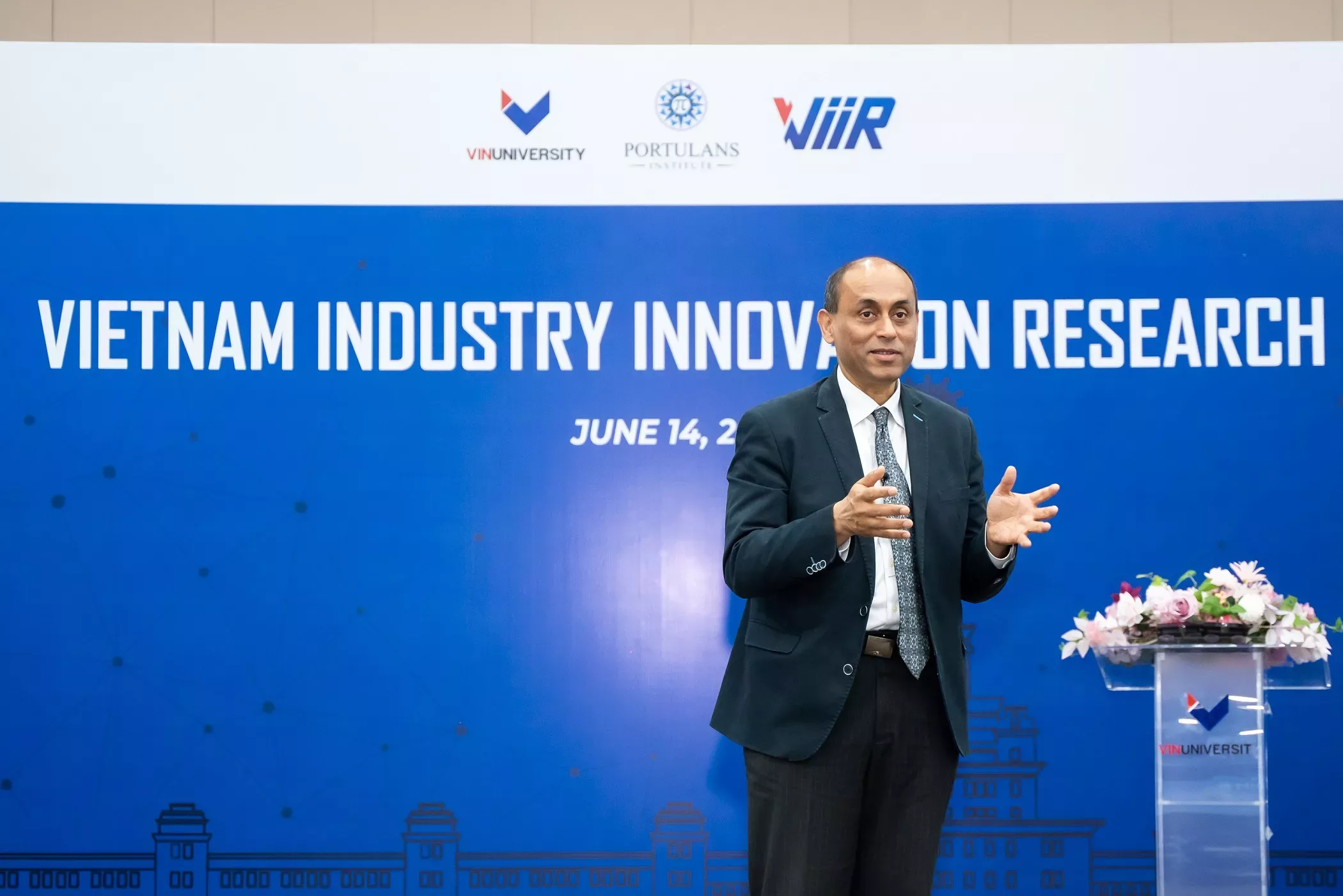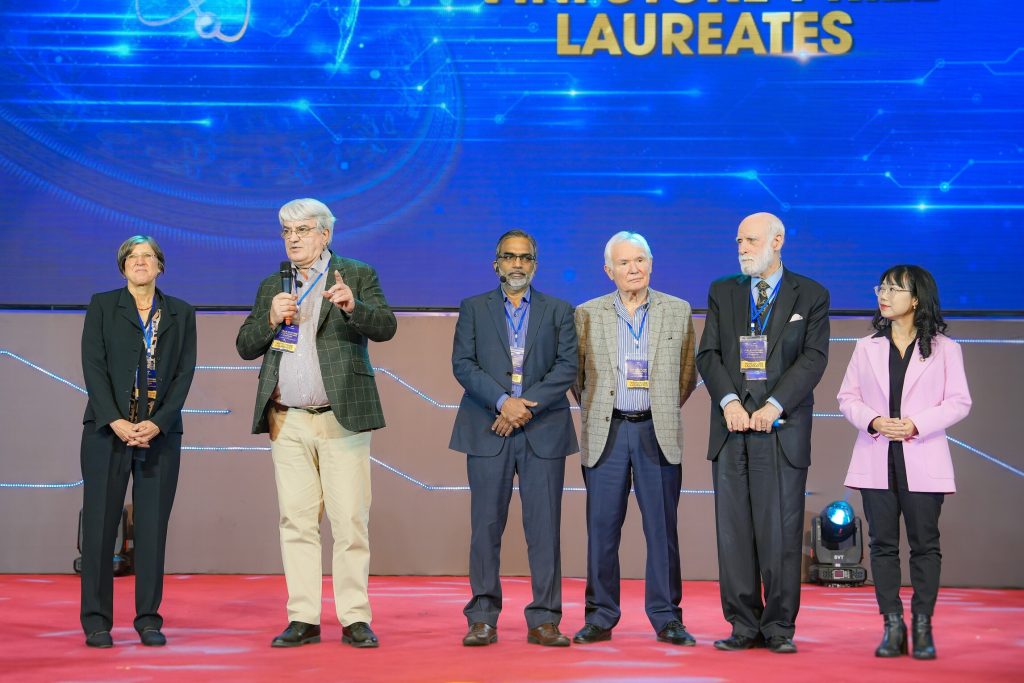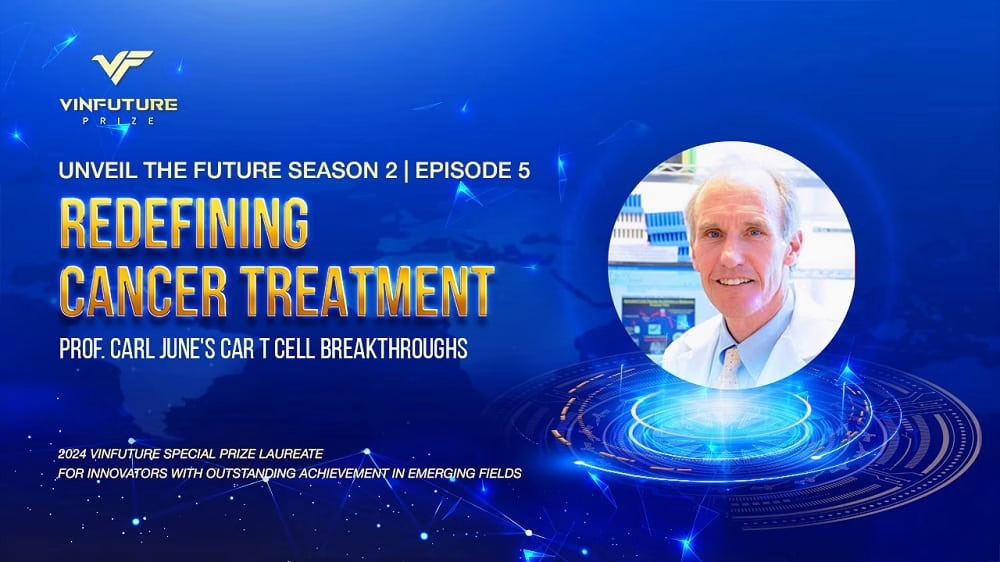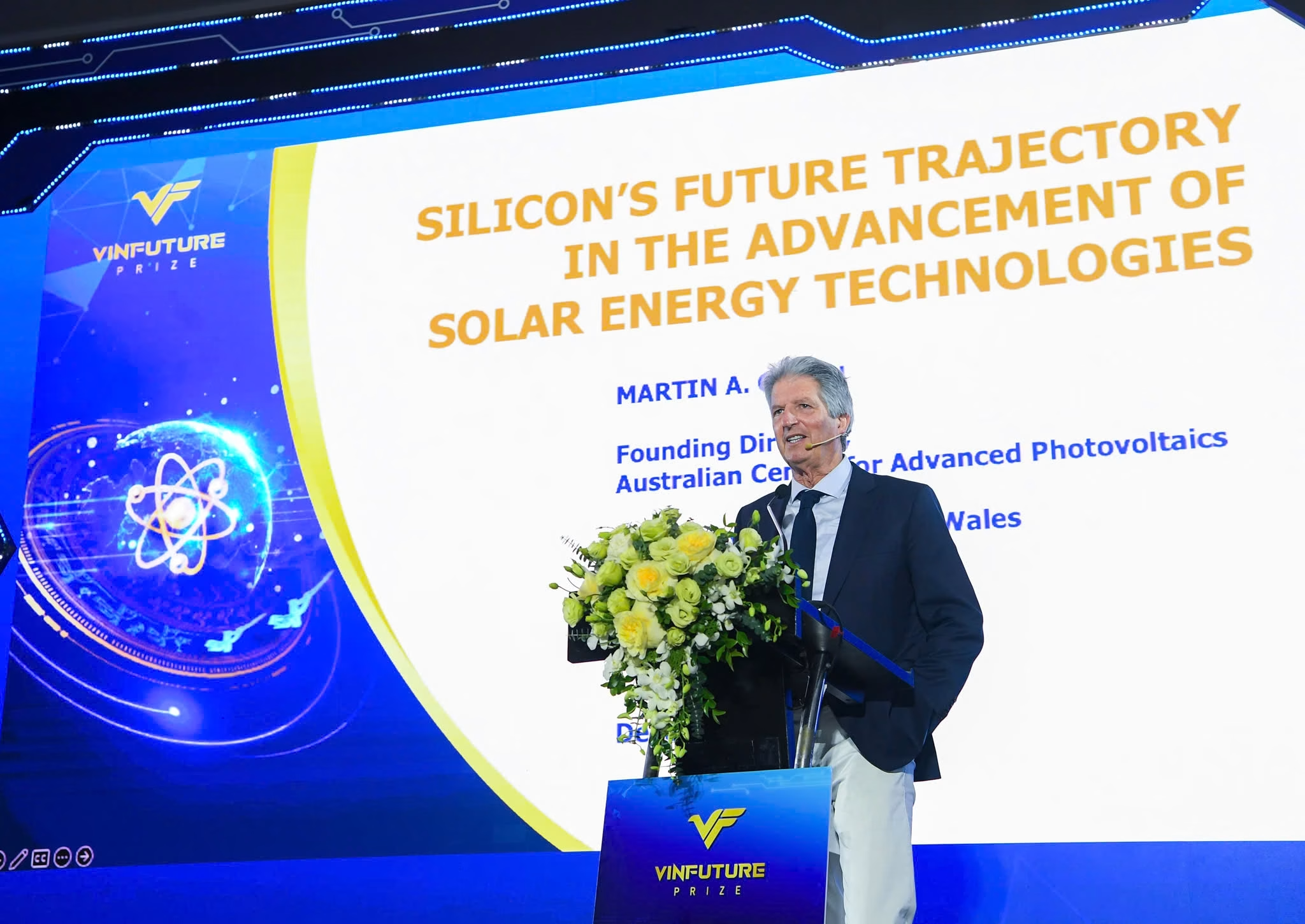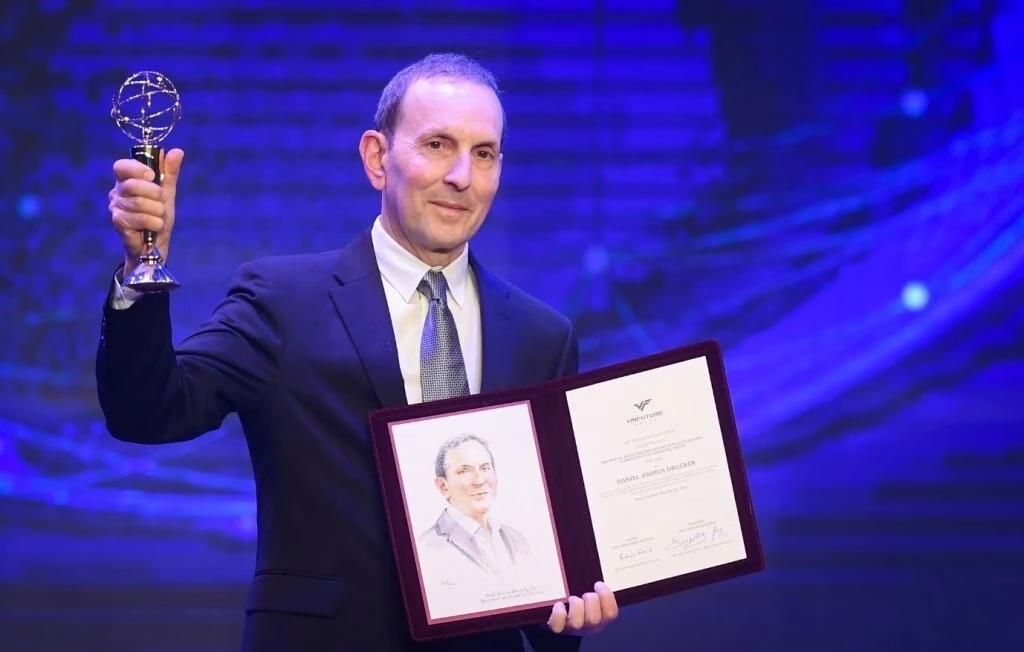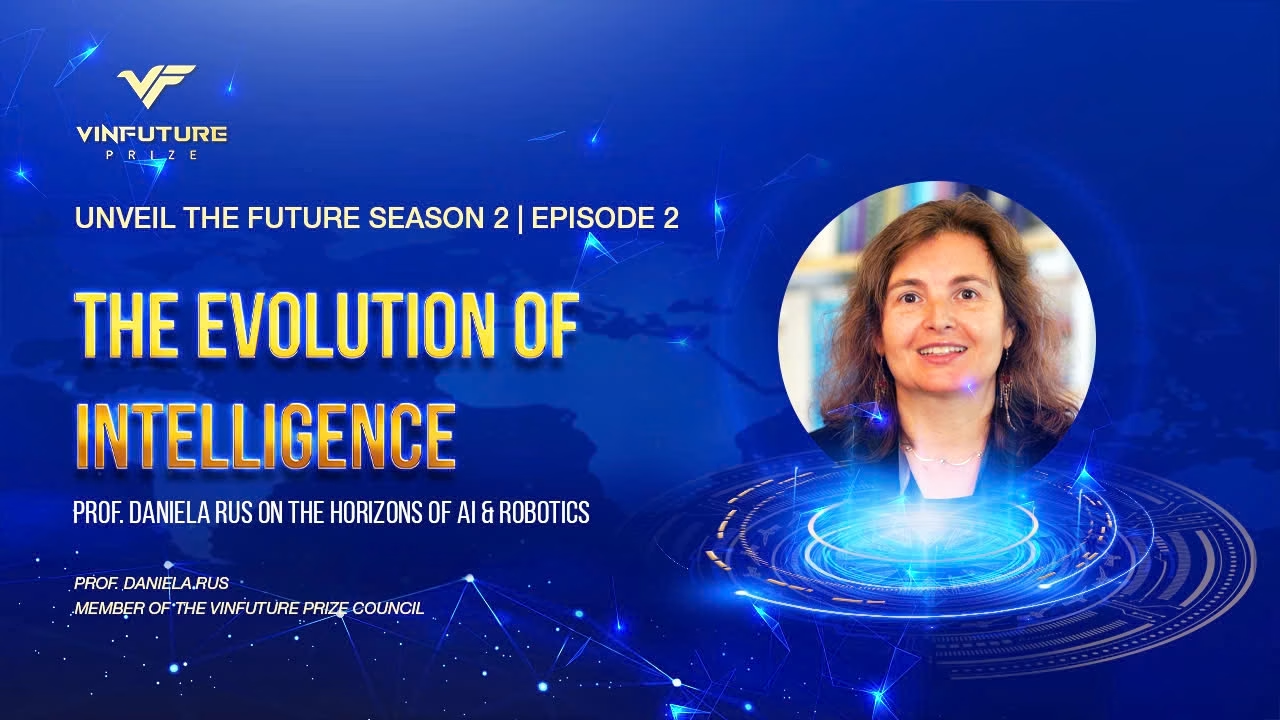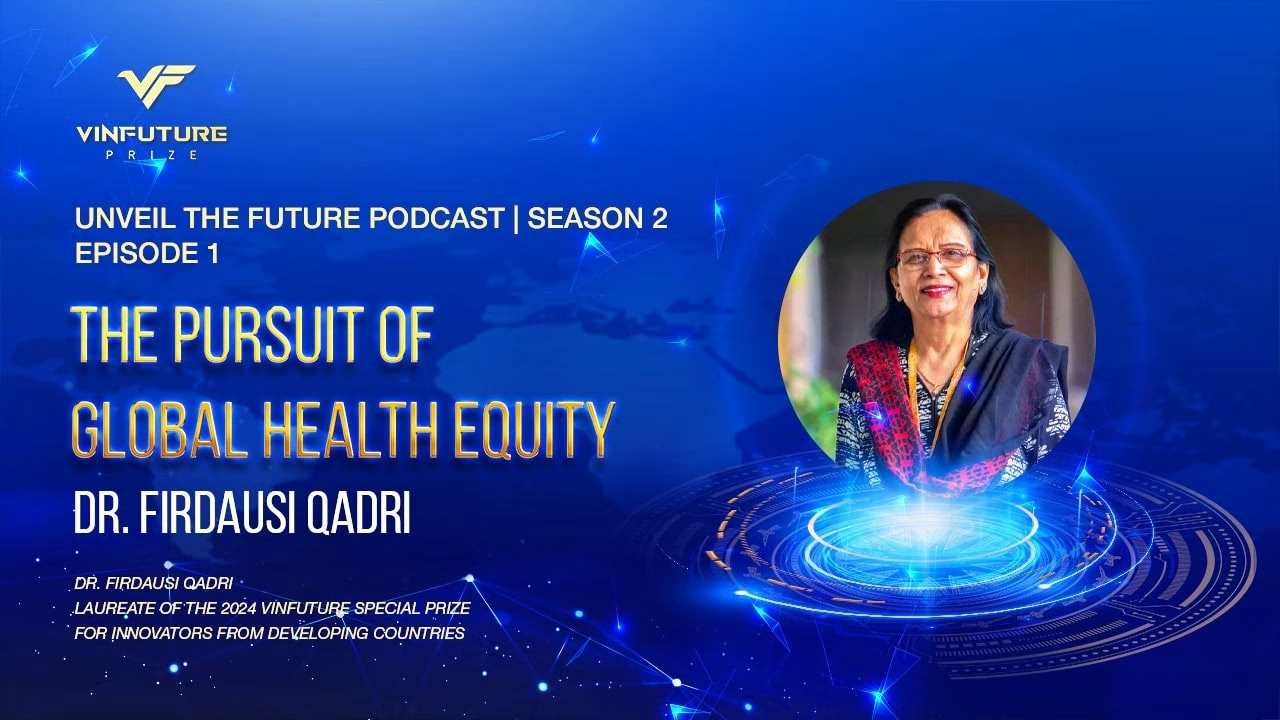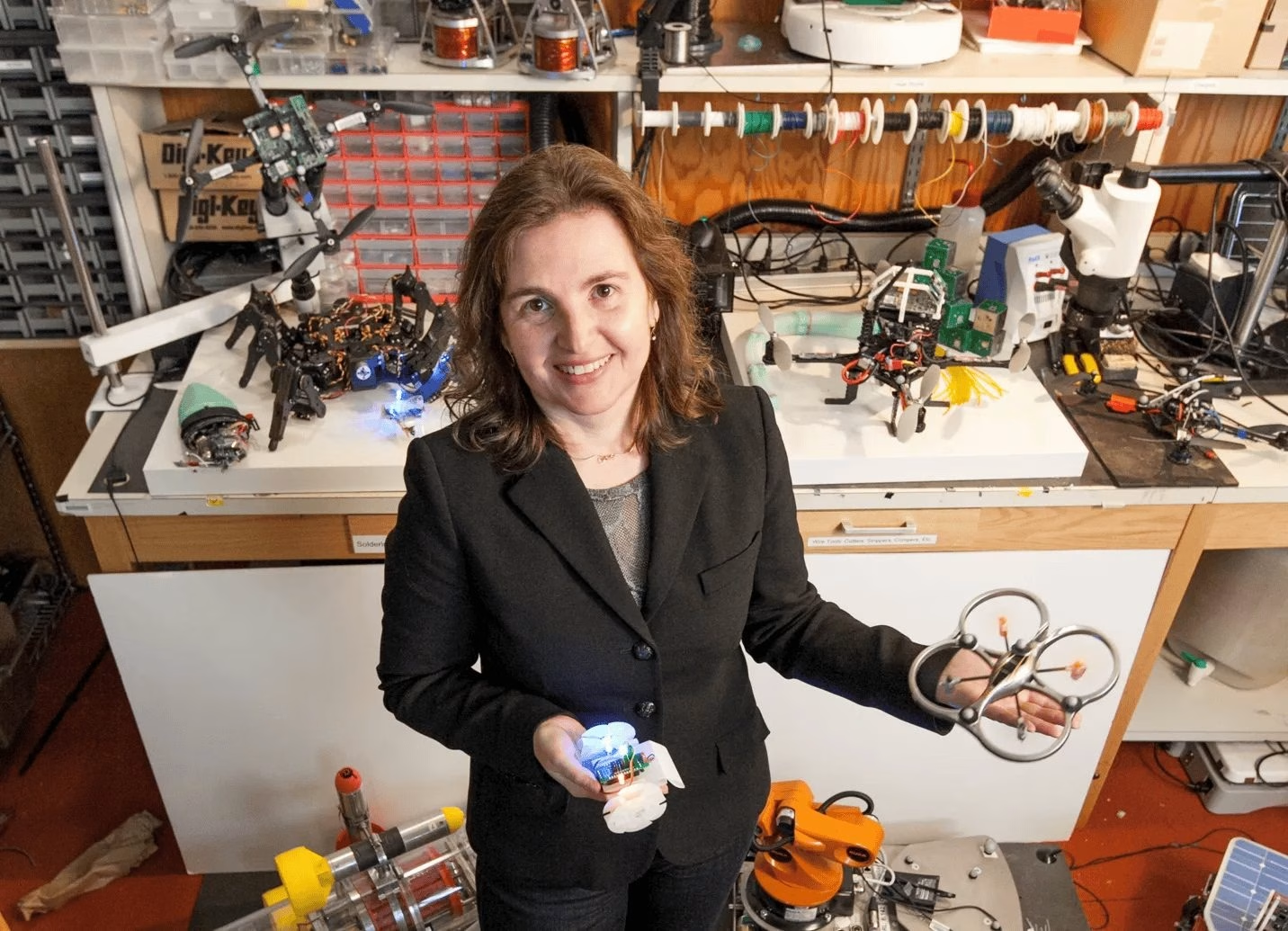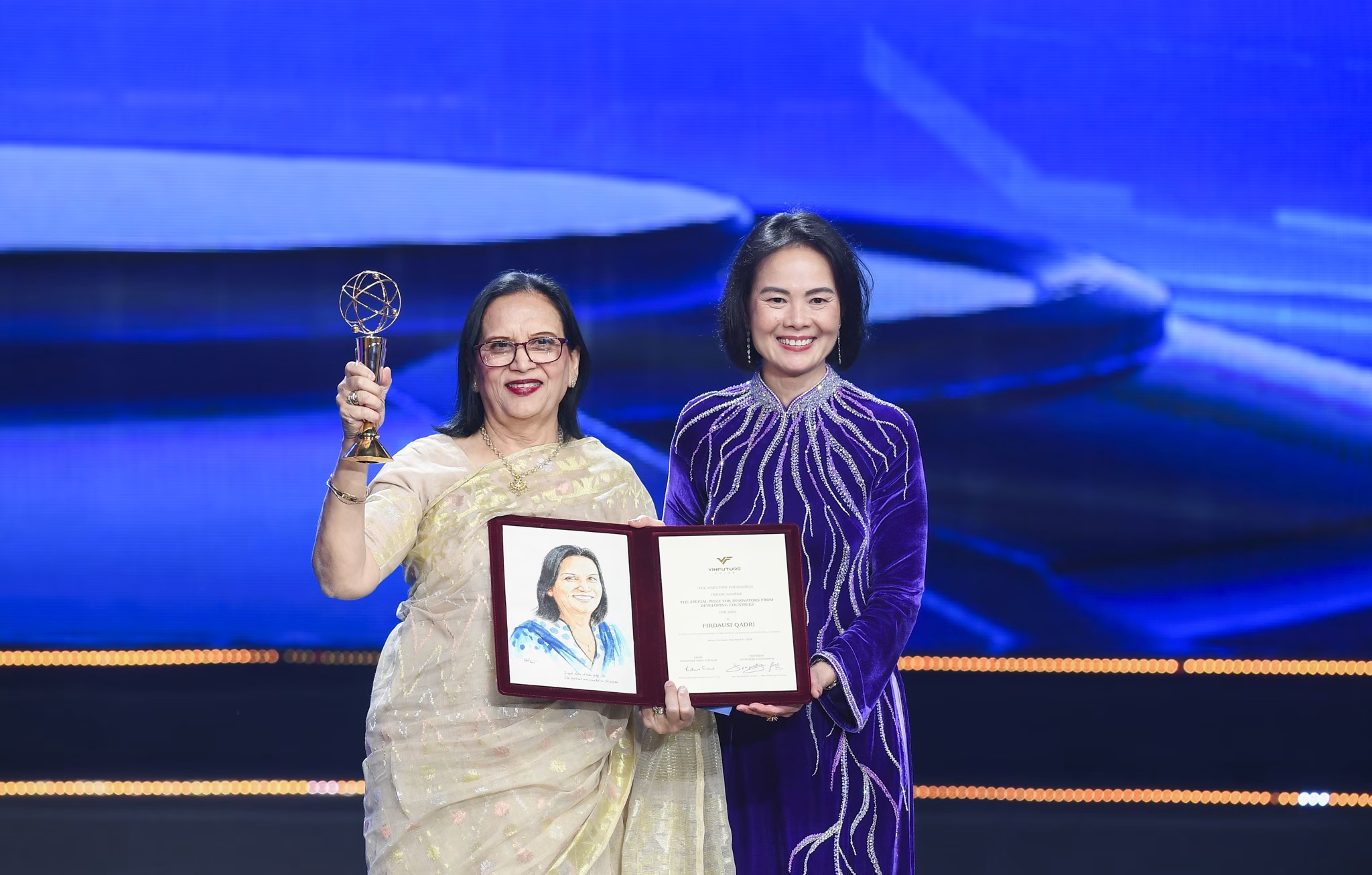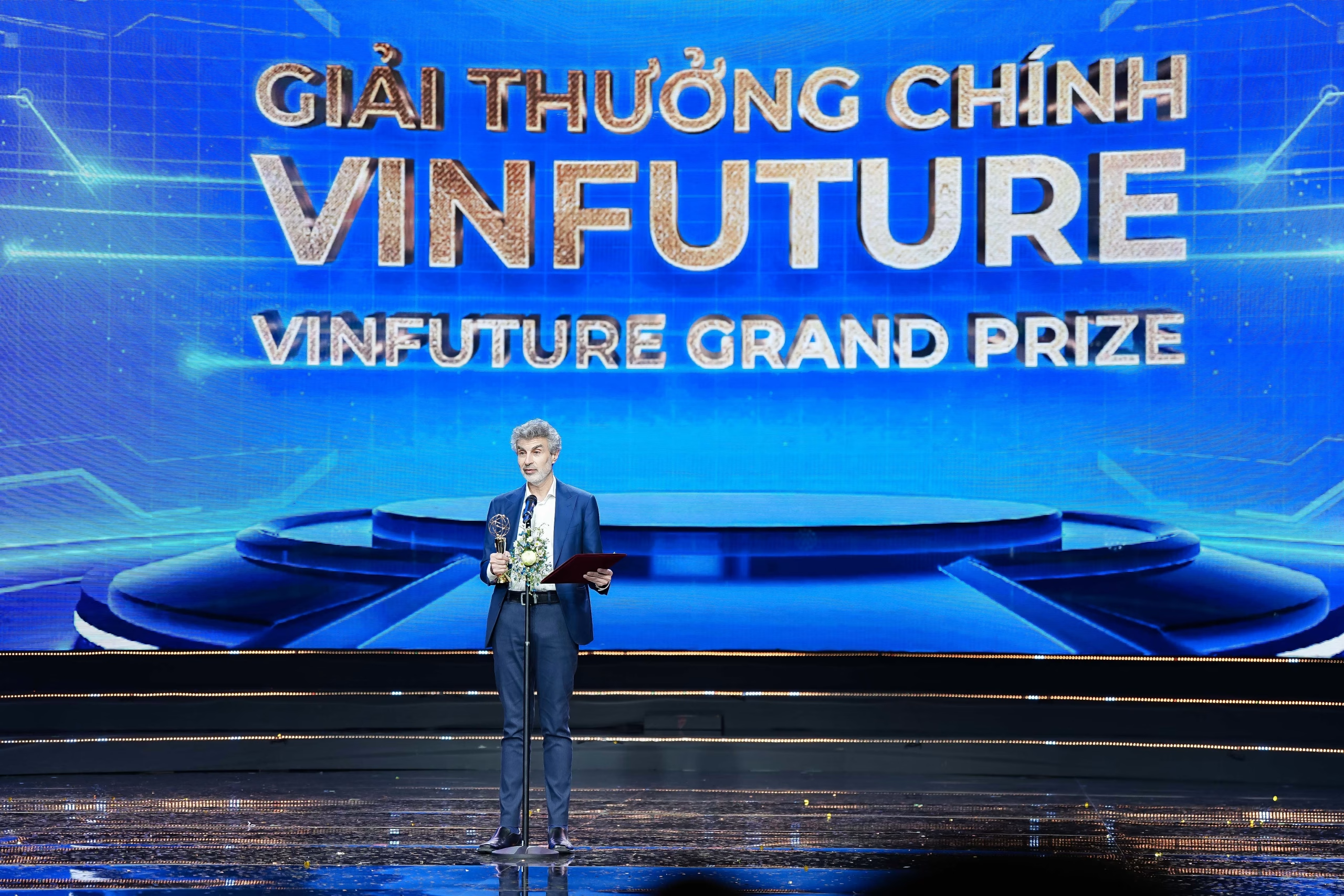– Can you share a bit about how your research and expertise align with this mission, and what insights you bring to the VinFuture Prize Council?
– Professor Dutta: I have a deep understanding of digital technologies, having earned a PhD in computer science, and diverse business and social science experience, working at the intersection of technology and business for a considerable period. Over the past 25 years, technology has emerged as a crucial driver of societal innovation worldwide. As part of my research, I have developed two widely used global indices in technology and innovation: the Global Innovation Index and the Network Readiness Index. These indices are employed by dozens of governments worldwide and have influenced technology and innovation policies in different countries.
What I bring to the table is a significant perspective that combines technology and business, which is essential for the present and the future of the world. I also offer rigor and practical knowledge from my industry experience. I have worked with numerous organizations, conducted various executive education programs, and provided consulting services to large organizations and governments globally. I have served on the boards of three large listed global companies and several smaller companies, and even started some successful companies myself. I have ample experience working with companies and applying practical knowledge of technology and innovation in the real world.
Additionally, I possess a strong global perspective, having been raised in India, studied and lived in the US, Europe, America, and Asia, and worked extensively with governments and companies worldwide. As a result, I believe I can provide a robust global perspective in the discussions of the VinFuture Prize Council.
Role of the VinFuture Prize in promoting science and innovation
– In your opinion, what is the role of global prizes, like the VinFuture Prize, in promoting scientific innovations and progress? How can these prizes be leveraged to inspire more young people to pursue careers in science?
– Professor Dutta: I believe that prizes serve two distinct purposes: to acknowledge achievements and to inspire the next generation. Those who have accomplished great things through hard work, dedication, and various other efforts deserve recognition. When the VinFuture Prize acknowledges these achievements, it also creates role models that inspire others. Young professionals and students, for instance, look up to these leaders and strive to emulate their success. As human beings, we learn by imitating others, and we are also inspired by their accomplishments. Thus, prizes aim to recognize the successes of today’s generation and, more importantly, inspire the next generation to follow in their footsteps and do even better.
– As a member of the VinFuture Prize Council, how do you see the importance of collaboration and interdisciplinary research to help drive innovation and progress toward solving some of the world’s most pressing challenges?
– Professor Dutta: To solve major issues, a holistic and systemic approach is required by integrating various perspectives from different disciplines. A single-discipline, single-stakeholder approach is not enough, and almost all significant problems require the integration of different perspectives and stakeholders. However, implementing multi-stakeholder, holistic, and systemic approaches that encourage collaboration across disciplines is challenging.
As previously mentioned, I come from an interdisciplinary background of technology and business with a PhD in computer science and have spent my life in a business school. I understand the importance of crossing boundaries and at the same time, how challenging it can be.
Global prizes such as VinFuture Prize can help stimulate cross-disciplinary collaboration by encouraging people to recognize the need for it. If people see that cross-disciplinary collaboration is necessary, they are more likely to promote and encourage it.
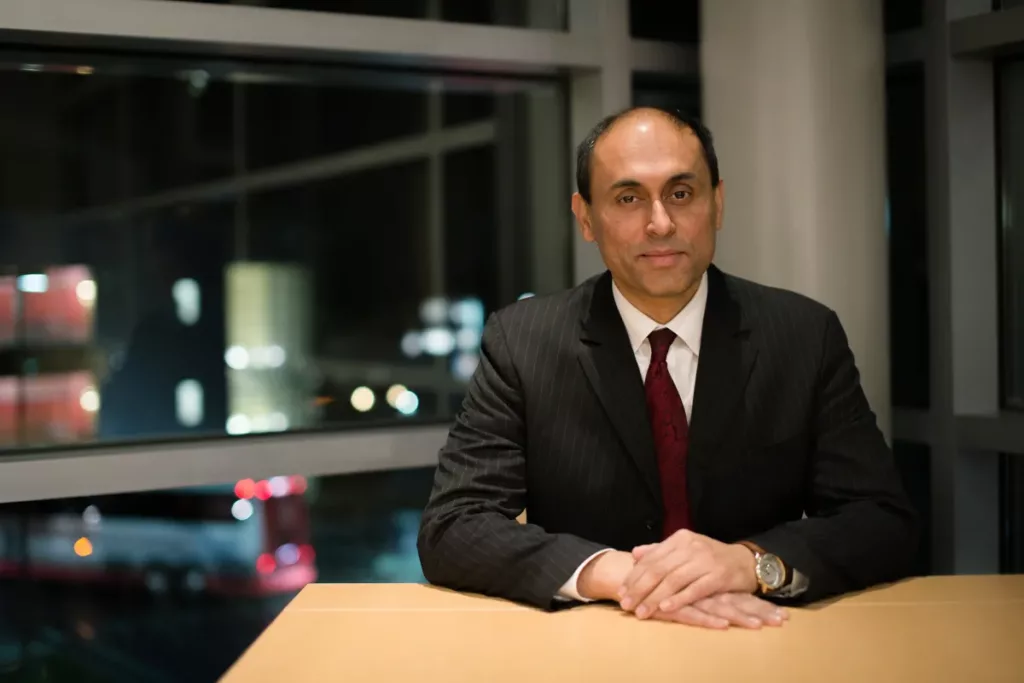
Second digital revolution
– In the upcoming years, what areas of research do you believe can create a significant positive impact on humanity?
– Professor Dutta: There are two ways of looking at the impact on humanity. One way is what I would term as more market-driven. If there’s a problem to be solved, you look at available technologies, what is possible, and try to combine them into the right solution for the market, with the appropriate business model, support the price points locally, and other local customer needs. This approach is what I call market-pull innovation and solutions.
The other approach is deeper, technology and science-driven solutions, where new technologies and application solutions are created fundamentally. These new technologies can create new solutions and new ways of solving problems.
In the 2022 edition of the Global Innovation Index, we examined the challenge of innovation and what will emerge in the future. We see two significant waves approaching. One is the second wave of the ongoing digital revolution. In our second digital wave, we are currently experiencing a steep exponential increase in digital technologies.
We are witnessing a blend of digital plus physical, biological, and physical… Digital manufacturing is becoming increasingly digital (such as with 3d manufacturing), and biological systems are also becoming more digitized. CRISPR technology and other gene editing technologies are now available. The second wave of digital is genuinely a trifecta of pure digital plus physical plus biological. This is a significant shift that is unfolding before us.
The second wave of innovation is in deep science. Many deep science and deep tech innovations in nanotechnology, biotechnology, material science, and other fields are taking place. You can fundamentally alter and re-engineer numerous things worldwide. What we see and anticipate happening offers many possibilities for the deep science, deep tech innovations that will produce all kinds of new interesting solutions.
I believe that deep science driven innovation has the highest potential for solving some of our most difficult challenges related to climate, fossil fuels, affordable housing, and so on.
For example, it is improbable that we will replace our reliance on fossil fuels with renewables alone because the change to new renewable energy sources is not progressing quickly enough. But we may completely modify the composition of fossil fuels and transform them into some type of e-fuel. It is an entirely different scenario to consider technological solutions that must be implemented to produce solutions for the future. So, while both market and technology-push solutions are important, I believe deep science based innovations are much more critical for our future right now.
– Why do you think it is important to promote scientific research and innovation in developing countries? What are some of the key challenges that these nations are facing? How can these challenges be addressed?
– Professor Dutta: Developing nations worldwide face numerous challenges, many of which are similar. On the one hand, they need to develop their economies and create more wealth to improve people’s lifestyles. On the other hand, they must do so responsibly and sustainably, without creating the same problems that have arisen from other current development solutions. This requires a proper institutional framework, appropriate rules and governance, and suitable societal systems. Developing economies face a complex combination of challenges.
Therefore, prizes such as the VinFuture Prize stimulate investment in science and technology. The challenge is that science and technology investments are expensive and require a significant commitment of human talent and resources to create leading-edge frontier technologies. Developing markets have traditionally focused more on market pull solutions that take existing technologies and combine them in a suitable manner for deployment in market scenarios, as is the case with frugal innovation.
Frugal innovation is not based on fundamentally new technologies. Instead, it takes current technologies, makes them cheaper, and more amenable to local markets, and uses them in those markets. While frugal innovation is useful for satisfying many needs of citizens in emerging markets, more needs to be done.
Emerging markets need to invest in the next generation of second-generation digital technologies to benefit from it. There is a significant investment required, and emerging market governments and organizations have no choice. If they fail to invest appropriately, they will be left behind, widening the gap and making it harder to catch up later.
– What kind of message would you like to convey to the global community about the importance of investing in scientific research and innovations, and the role of prizes like the VinFuture Prize in this effort?
– Professor Dutta: Today, we understand that innovation is a global phenomenon, and talent exists worldwide. Even leading innovative companies and organizations in developed economies need to acquire talent from developing and emerging nations. I believe that we should view innovation as a global challenge, leveraging global resources.
My recommendation and the message I would like to convey to the global community are to “Think globally and leverage locally.” It is crucial to invest in deep science and tech while understanding the needs of local markets. Without this understanding, providing the right solutions would be impossible. Therefore, creating new technologies and deploying solutions requires a local perspective because a solution that works in a developed country may not work in a developing nation. You might need to tailor solutions for emerging markets. That’s the first part of the message.
The VinFuture Prize and similar awards are crucial because they recognize the importance of science and deep tech revolutions in emerging markets. Most of the major scientific prizes are traditionally given in developed economies. Therefore, it is significant that a major scientific prize is now given in Vietnam, an emerging economy. This demonstrates to the world that emerging economies can be equal partners in the innovation game. It also shows that emerging markets are important homes of innovation and places where innovation is recognized.
I hope that the VinFuture Prize will motivate innovators and scientists in emerging markets to strive for recognition in the future. I also hope that it will raise the profile and importance of emerging markets in global innovation and inspire many people in developed markets to look at developing markets and encourage people in developing markets to help create the next generation of technologies and other innovative solutions.
